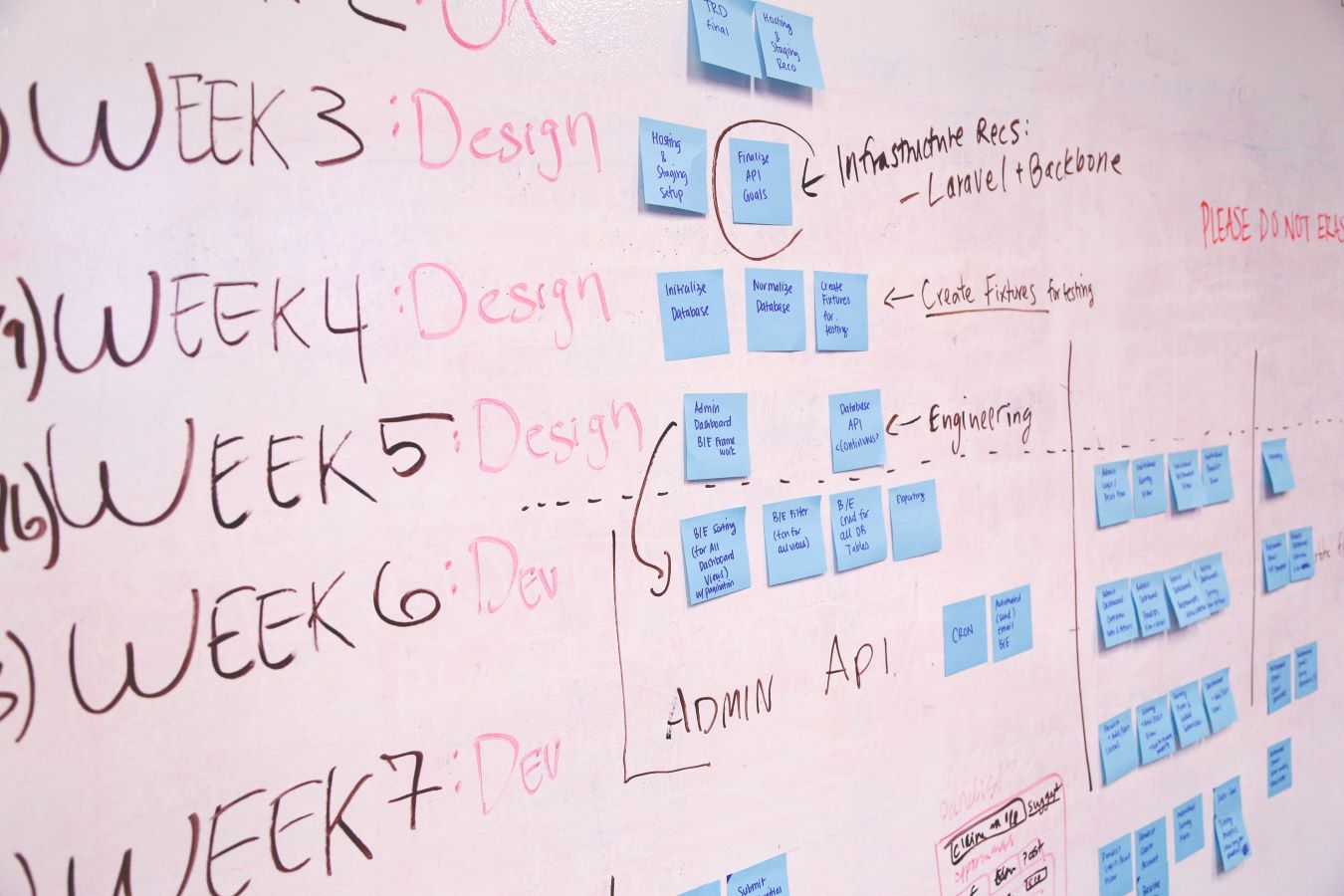
How Do I Become an Expert in Data Science?
![]() Speedy Mentors
Speedy Mentors
![]() 3 yrs ago
3 yrs ago
Data science is shaping the future. From influencing purchasing habits to improving public health, the discipline has vital applications across industries. Due to this, demand for data science expertise is growing, with companies from virtually every job sector needing them. That makes data science an excellent career path. Almost all data science careers are considered high-level positions, requiring candidates to be well educated with degrees in computer science, mathematics, and statistics. Beyond a degree, becoming a data science expert also entails having hard and soft skills to thrive and survive the demands of working in this field. So if you are interested in pursuing this career path, it is a good idea to start building your expertise now. This article will tell you how. What is Data Science? Let us start by discussing what data science is all about. Data science is a discipline that uses a combination of scientific methods and statistical techniques to gather, store, analyse, manage, and interpret data to derive actionable insights that support organisations’ decision-making. Almost all technologies today use data to facilitate our interactions with them—making purchases online, the advertisements on your social media feed, the recommendations you receive from Netflix, and the virtual personal assistants in devices like Siri and Alexa. Data science is much needed today because it allows companies to capture and analyse vast data generated by their activities and customers. As a result, they can unlock the power of their data to improve their services, practices, and revenues. For instance, data science allows retailers to influence customers’ purchasing habits. In the public health field, it can accelerate the development of medicines for specific diseases. In finance, it can be applied to detect fraud. Basically, data science provides excellent benefits to both companies and consumers, and it is helping drive changes and progress for a better and brighter future. Careers in Data Science Given the benefits that can be derived from data science, it should not come as a surprise that data science experts are in high demand. In fact, since 2012, data science has been one of the fastest-growing career fields, experiencing a 650% growth rate, according to LinkedIn. Also, top companies like Google, Apple, Amazon, Microsoft, Facebook, Deloitte, and PwC hire data science experts to create algorithms to improve their customer service and maximise their profits. That only shows that data science is here to stay, opening up more opportunities across industries. There are plenty of roles you can pursue in the data science field. These include: Data scientist Machine learning engineer Machine learning scientist Data architect Enterprise architect Applications architect Infrastructure architect Data engineer Big data developer Full stack engineer Business intelligence developer Data analyst Statistician Customer success manager Sales development representative All the above-listed roles have the highest growth rates in the industry, and companies need them to devise data-driven solutions. The median base salaries for entry-level positions range from $95,000 to $167,000. In comparison, more experienced professionals can take home anywhere from $146,000 to $250,000. Becoming a Data Science Expert If you have plans to get into data science, you will be in luck to have the advantage of being on a career path in which the demand exceeds the supply. As the Harvard Business Review puts it, “the shortage of data scientists is becoming a serious constraint in some sectors.” However, you also have to consider that companies will not just settle for less despite the shortage of qualified candidates. After all, most data science jobs are high-level positions, and companies want to ensure that they have the right talents who can get the job done. With that in mind, you want to build your expertise, and here are some ways to do that. Develop the right skills To reach a degree of specialisation, you first need to have a vast knowledge of data science and its associated fields, such as mathematics, statistics, information technology, programming, and engineering. Developing proficiencies in critical data science tools and technologies is also crucial, including Excel, Python, SQL, R, Tableau, and PowerBI. It becomes easier to work with and organise raw data, build models, and create visualisations when you know how to use these tools and technologies. Learn vital programming languages As stated above, data science relies on various tools for processing data. Programming languages, for one, are extremely useful in the field as they allow for the manipulation, cleaning, analysis, and modeling of large data sets. Python is the most widely used programming language in data science as it is inherently object-oriented. It can also support various paradigms, making it ideal to use for quicker data manipulation. JavaScript is another programming language worth learning. With its hundreds of libraries, you can address various problems you may come across while working on data with ease. It is also an exception tool for handling multiple tasks, creating dashboards, and visualising data. R is one of the most recommended programming languages for statistical computing and graphics and exploring large data sets. On the other hand, it is a must to learn how to use SQL to manage data effectively. This domain-specific language is convenient for all things databases, including storing, retrieving, and manipulating databases. Other programming languages you should consider learning include Scala for its web programming and machine learning applications, Julia for high-performance numerical analysis and computational science, and TensorFlow for creating dataflow graphs. Work on personal data science projects It is a good idea to put your knowledge of data science fundamentals and tools into practice. A way to do that is to work on projects that draw on your various data science skills. For instance, you can do data analysis using statistical methods with Python or build models to gain new insights. As you work on your projects, use various data sets to improve your ability to gather and explore data. Also, go through different stages of processing data. That includes conducting research, data gathering, cleaning and testing, and developing algorithms to analyse and model that data. From there, visualise your work. Use tools like Tableau and PowerBI to demonstrate your findings in a manner that makes insights apparent. If you can, present your visualisations to people you know. Doing so will help improve your communication and presentation skills significantly. Record your successes When working on projects, it is only natural that you may not get things a couple of times. That is how you learn and grow. Also, data science is all about being iterative. You need to repeat processes to develop a series of outcomes, allowing you to know what works and what does not. This makes it crucial to record your successes, so you can replicate your work later on and avoid practices that can lead to failures. Create your portfolio When you have completed an impressive range of projects, be sure to put them all together in a portfolio. That will serve as a validation of your data science skills, which will be particularly useful once you start applying for work. Take note that your portfolio is your opportunity to demonstrate your capabilities. So, highlight various projects that will speak about your range of skills. It is also good to include a compelling narrative that identifies the problems you were trying to solve and the steps and tools you have used to address them. Find a data science mentor To further enhance your skills and drive your desired impact in your career, find a data science mentor. This will be a transformational learning and growth experience that will lead you to improved data science skills and better career prospects. Having a mentor, usually a more experienced person in your field, allows you to gain insights based on their experiences. You also learn how to accomplish things and make your strengths more visible. When you search for a mentor, find someone who is motivated and enthusiastic about developing others and is ready to commit their time. That way, it will be easier to connect with them, especially when you need it the most. Also, it will be best to find a data science mentor whose career trajectory was similar to yours. By doing so, your mentor will understand the common issues you are facing in your career, which in turn will open lots of information and concerns to share, discuss, and discern. Data science is a fast-paced and ever-evolving industry with many challenges to boot. To keep up with the competition, it is imperative that you continuously develop your expertise. Doing so will help you attract more job opportunities while also growing your credibility and improving your professional profile.
Recent Articles

From Training to Employment as a Data Analyst
In today's data-driven world, ...
![]() Sep 27, 2023
Sep 27, 2023

Software Testing Course Discounts and Offers
In the fast-paced world of sof...
![]() Sep 26, 2023
Sep 26, 2023

Launch Your Data Analyst Career with Online Courses
In today's data-driven world, ...
![]() Sep 25, 2023
Sep 25, 2023

Certification Paths in Project Management
In today's competitive job mar...
![]() Sep 22, 2023
Sep 22, 2023

Placements and Job Assistance in Data Analyst Training
In today's data-driven world, ...
![]() Sep 21, 2023
Sep 21, 2023

Paving Your Path to Excellence: Project Management Certification
In today's competitive job mar...
![]() Sep 21, 2023
Sep 21, 2023

Data Science Skills and Training: Navigating the Path to Success
In today's data-driven world, ...
![]() Sep 21, 2023
Sep 21, 2023

Mastering Project Management Internships
Are you considering a career i...
![]() Sep 19, 2023
Sep 19, 2023

Why an Internship Program is Critical for Early Career Business Intelligence Analysts
Business intelligence analysis...
![]() Jan 31, 2023
Jan 31, 2023

Where to Obtain Top-Quality Help for Securing a Software Tester Position
Software testing is a crucial ...
![]() Jan 31, 2023
Jan 31, 2023
#1 Resource for QA Tester Job Assistance You
QA testers are in high demand ...
![]() Jan 31, 2023
Jan 31, 2023

10 Tips for Becoming a Data Analyst Trainee
As data analysts, we use vario...
![]() Jan 31, 2023
Jan 31, 2023

A Full Guide to Business Analyst Work Placement Program
Business analysis is crucial t...
![]() Jan 31, 2023
Jan 31, 2023

How to Find the Best Cyber Security Job Assistance
Cybersecurity is one of the fa...
![]() Jan 27, 2023
Jan 27, 2023

How Does a Business Analyst Career Support Work?
Business analysts are essentia...
![]() Jan 27, 2023
Jan 27, 2023

How Does a Software Tester Career Support Work?
Software testers are one of th...
![]() Jan 27, 2023
Jan 27, 2023

How to Get a QA Tester Job Placement
QA testers are professionals w...
![]() Jan 26, 2023
Jan 26, 2023

How Does a Software Tester Job Support Work?
Software testers are one of th...
![]() Jan 26, 2023
Jan 26, 2023

The Importance of an Internship Program for An Entry-Level Business Intelligence Analyst
Businesses need a lot of data ...
![]() Jan 26, 2023
Jan 26, 2023

Where to Find the Best Software Tester Job Assistance
Every day, a lot of software i...
![]() Jan 26, 2023
Jan 26, 2023

Where to Find the Best QA Tester Job Assistance
As a QA tester, you must have ...
![]() Jan 26, 2023
Jan 26, 2023

How to Land a Project Management Role With Little to No Experience
If you’re looking to lan...
![]() Dec 28, 2022
Dec 28, 2022

How Do I Land a Role as a Data Analyst with a Very Little Experience?
Are you an aspiring data analy...
![]() Dec 19, 2022
Dec 19, 2022

The Benefits of Gaining Work Experience in the Field of Cyber Security
With the ever-increasing deman...
![]() Dec 16, 2022
Dec 16, 2022